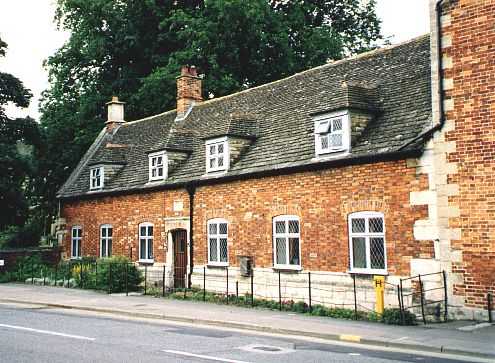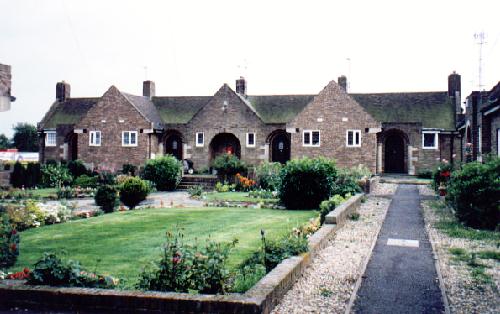The origin of the almshouse is mediaeval because the "hospitals" of the middle ages were not as a rule medical, but for the support of infirm and aged people. Many of those that survive therefore are still known as hospitals and the name is particularly prevalent in Scotland. Some were ecclesiastical in foundation and one of the earliest is St John's Hospital at Canterbury in Kent, founded in 1108, while the best known is the hospital of St Cross at Winchester in Hampshire. The rise of the middle classes during the 14th and 15th centuries gave a fresh impetus to their creation although some disappeared during the dissolution of the monasteries during the reign of Henry VIII but their endowment became popular in the ensuing years through the work of charitably disposed individuals.

Almshouses are generally found in the older, historic towns and villages and usually lacking in the larger urban growths of the industrial age. By 1950, there were nearly 13,000 almshouses in Britain, most of them in England, and half were erected before 1840 although most have been modernised or repaired since then. The accommodation of these cottages or flats is usually minimal but not sparse, with at least two rooms and a kitchen and the tenants are chosen under the terms of the original foundations, sometimes from the locality or often from a particular trade. There is never a lack of suitable applicants and almshouses are likely to serve a useful purpose even today in providing homes for the aged who still choose their independence and cannot or will not live with relatives.
Bourne has had a strong tradition of care for the aged, the needy and the handicapped through the benevolence of wealthy people who either lived here or who had connections with the town. The advent of the welfare state has not removed the need for this and so much is still done on a local and voluntary basis to meet the demand. The result is that two sets of almshouses from past times can be found in the town where they continue to provide much needed accommodation for deserving cases.
A stone tablet on the front of the Tudor Cottages in South Street (pictured above) suggests that these almshouses were built in 1636 but this is misleading. They most likely date from the late 18th or early 19th century and the original building on this site were the Trollope Bede Houses. They were erected in that year although the present cottages were built on the original foundations and much of the materials from the previous properties were probably used in the reconstruction.
The benefactor for this charitable undertaking was William Trollope, a landowner, and member of a prominent wealthy family that had been associated with the Bourne area since 1543. He founded a hospital and provided a yearly sum of £33 for the maintenance of "six poor aged men" from the parish who were accommodated in the almshouses. Trollope was also instrumental in providing sufficient funds to help put education on a firm footing and his generosity was typical of several rich landowners of the period who contributed greatly to the welfare of the people and the development of the town.

Bourne United Charities have been responsible for the twelve almshouses in West Street (pictured above) since they were built in 1931 to provide homes for elderly inhabitants. The houses are situated in an attractive setting just off the main road and ranged on four sides around lawns and flower beds and tenancies are much sought after. A bronze plaque has been erected at the front of the almshouses to perpetuate the memory of the local benefactors who contributed money in past centuries for such philanthropy, William Trollope, William Fisher and Robert Harrington, the founders of various charities in the 17th century.
Return to HOME PAGE MAIN INDEX